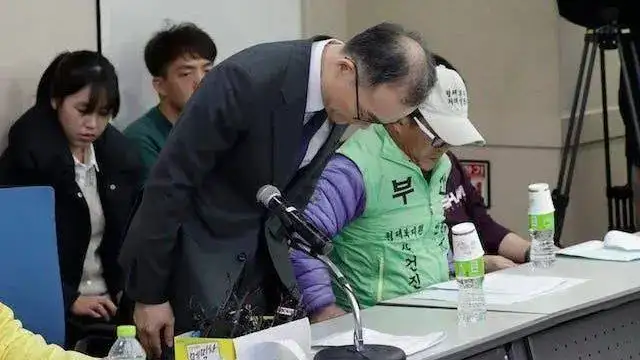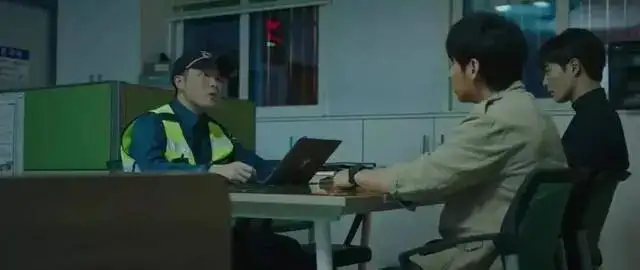|
在上一期的外刊精读中,我们已经学习了部分关于韩国“兄弟之家”福利院的报道,接下来贸学长和大家一起完成剩余部分的学习。
原文导读(下)
The facility held not only homeless and disabled people, but also people with families and jobs who were found drunk or without proper identification, as well as panhandlers and even political dissidents. It received government subsidies based on the number of people it held, investigators said. It paid bribes to police and municipal officials for working with Brothers Home officials to find unattended children on the streets, shipping them to the center and listing them as orphans.

“I was playing alone in my neighborhood in Busan when the men snatched me, tossing me like garbage onto a freezer, truck-like vehicle,” said Lee Dong-jin, 57, who was sent to Brothers Home at the age of 10 and spent seven years there. At Brothers Home, Mr. Lee was “No. 110.” What he found there, he said, was “a sheer hell.”
Brothers Home was run by Park In-keun, a former army sergeant. Mr. Park was decorated with government medals for running an exemplary welfare center. A 1981 propaganda documentary made by the government-run Korea Film Production billed Mr. Park as a devout Christian who worked tirelessly to reform incorrigibles and vagrants. At the top of his facility was a large Protestant church.

Later it was revealed that Mr. Park ran the place like a concentration camp, guarded by tall walls and doors locked from the outside at night, according to victims and investigators. Clad in discarded military uniforms or blue tracksuits, those who were held there worked from dawn to dusk in factories that produced everything from clothing and shoes to fishing equipment and cocktail umbrellas. Brothers Home pocketed more than half of their wages or paid them nothing, the commission said.
“On one hand, Park In-keun collected money from Christian donors,” said Choi Seung-woo, 53, who spent five years at the center until 1986. “On the other hand, he gathered all of us in the church and punished rule-breakers ‘in the name of Jesus and God.’ He kicked and bludgeoned us, blood splattered from our head.”

Han Jong-sun, 46, who was taken to Brothers Home at 8 years old, said he saw guards bludgeoning a young man having an epileptic seizure. The teenager was taken away with his eyes rolling to the back of his head and was never seen again. Mr. Han said he was regularly raped by male platoon leaders.
Victims say they have struggled with depression and rage, often ending up in prison or becoming abusive spouses or parents since their time at Brothers Home. Mr. Choi’s brother, who had also been held there, took his own life in 2009. Mr. Han’s sister, another victim, ended up in a mental institution.

“The place deprived us young inmates of our adolescence and education, limiting our ability to speak for our rights and get the political attention we deserved,” Mr. Park said. “Even as our country democratized, we never became part of a mainstream class, treated like something that it was best to keep out of sight.”
第一段:The facility held not only homeless and disabled people, but also people with families and jobs who were found drunk or without proper identification, as well as panhandlers and even political dissidents. It received government subsidies based on the number of people it held, investigators said. It paid bribes to police and municipal officials for working with Brothers Home officials to find unattended children on the streets, shipping them to the center and listing them as orphans.
参考译文:兄弟之家不仅关了无家可归的人和残疾人,还有一些有家人、有工作的人,这些人仅仅是因为在街上喝醉了或没有适当的身份证明,还有就是乞丐,甚至是持不同政见者。调查人员表示,兄弟之家依据收容的人数获取政府补贴。它向警察和市政官员行贿,让他们与机构的官员合作,在街头寻找无人看管的儿童,并把他们当作孤儿送进福利中心。
知识点解读:
1.The homeless/ homeless people:无家可归的人
2.The disabled/ disabled people:残疾人
3.the disadvantaged:弱势群体
4.government subsidies:政府补贴,例如,“For those hardscrabble families, government subsidies no doubt would be welcomed.对于那些贫穷的家庭,毫无疑问政府津贴会受到欢迎。”
5.pay bribes to:行贿,例如,“Many communities in flood-prone zones even had to pay bribes to get any flood control or irrigation projects at all.很多易受灾地区的人们有时为了防洪和灌溉需要甚至不得不向官员行贿。”
6.unattended children:留守儿童,相当于“left-behind children”或者“stay-at-home children”。
ship to:运输、运送,例如,“A piece of software is said to have gone gold when the final version is complete and it is ready to ship to the public.当一个软件的最终版本完成并准备好向公众发售时,就可以说它已经进入了黄金时代。”
第二段:“I was playing alone in my neighborhood in Busan when the men snatched me, tossing me like garbage onto a freezer, truck-like vehicle,” said Lee Dong-jin, 57, who was sent to Brothers Home at the age of 10 and spent seven years there. At Brothers Home, Mr. Lee was “No. 110.” What he found there, he said, was “a sheer hell.”
参考译文:57岁的李东进(Lee Dong-jin)说:“当时我独自在釜山附近玩,几个男人一把将我抓住,像垃圾一样把我扔到一辆卡车模样的冷冻车上。”他10岁时被送到兄弟之家,在那里呆了7年。在兄弟之家,李东进的编号为“110号”。他说,那里是“彻头彻尾的地狱”。
知识点解读:
1.snatch: 一把抓起;一下夺过,例如,“I saw the little boy slip into the kitchen and snatch a bun, but I looked through my fingers at it.我看见这小男孩溜进厨房,拿了一个小圆面包,可是我假装没看见。”有一个地道的表达叫“snatch victory”,意为“夺取胜利”。
2.toss:掷;甩(头,以表示恼怒或不耐烦),例如,“She jerks her head to toss an errant lock of hair out of her eyes and fixes him with a stony glare.她甩了甩头,把落在眼前的一缕发甩开,用一种冷冷的眼神看着他。”
3.sheer:十足的,例如,“He has fought his way out of a number of tight corners by a simple combination of sheer luck and more talented friends.他只是靠了运气,靠了比他更有天赋的朋友才勉强摆脱了许多困境。”口语中常说的“sheer nonsense”就是指“一派胡言”。
第三段:Brothers Home was run by Park In-keun, a former army sergeant. Mr. Park was decorated with government medals for running an exemplary welfare center. A 1981 propaganda documentary made by the government-run Korea Film Production billed Mr. Park as a devout Christian who worked tirelessly to reform incorrigibles and vagrants. At the top of his facility was a large Protestant church.
参考译文:兄弟之家由前陆军中士朴仁根经营。朴先生因经营一个模范福利中心而被授予政府奖章。1981年,韩国政府运营的电影制作公司制作了一部宣传纪录片,将朴仁根称为一名虔诚的基督徒,称他不知疲倦地努力改造那些不可救药的流浪汉。兄弟之家的顶部是一座大型新教教堂。
知识点解读:
1.be run by:由……经营,这里的run是“经营、管理”的意思。
2.exemplary:杰出的、值得效仿的,写作中如遇措施类题材,课用于举例子,例如,“Association with exemplary seniors gives the children the advantage of learning many things.子女有机会跟堪作模范的长者来往,会学到许多东西。”
3.devout:虔诚的,常常跟宗教相关,例如,“She was a devoutly Catholic.她是一个虔诚的天主教徒。”
第四段:Later it was revealed that Mr. Park ran the place like a concentration camp, guarded by tall walls and doors locked from the outside at night, according to victims and investigators. Clad in discarded military uniforms or blue tracksuits, those who were held there worked from dawn to dusk in factories that produced everything from clothing and shoes to fishing equipment and cocktail umbrellas. Brothers Home pocketed more than half of their wages or paid them nothing, the commission said.
参考译文:据受害者和调查人员透露,后来有消息称,朴仁根把兄弟之家管理成了一个集中营,由高墙把守,晚上外面的门都锁着。被关押在那里的人身穿废弃的军装或蓝色运动服,从早到晚在生产服装、鞋、钓鱼设备和鸡尾酒伞等各种产品的工厂里工作。该委员会表示,兄弟之家将员工一半以上的工资收入囊中,或者压根不发工资。
知识点解读:
1.concentration camp:集中营,也可以译为“强制収容所”,例如,“He said he had been cruelly hounded in the concentration camp.他说他在集中营曾受到残酷的迫害。”
2.from dawn to dusk:从早到晚,是一个非常地道的表达,例如,“The cold wind reminds me of the arrival of winter. The dimness reminds me of the arrival of night. From dawn to dusk, a day pasted again.冷冽的风让我意识到这已经是冬天,昏暗的夜色提醒我夜晚的来临。从黎明到黄昏,一天的时间又过去了。”
3.pocket:作动词时表示“中饱私囊;攫取;揩油”。有个地道的英文表达为“have sth in your pocket”,意为“胜利在握;稳操胜券”,例如,“Last year's winners again have the championship firmly in their pocket.去年的冠军得主今年仍旧稳操胜券。”
第五段:“On one hand, Park In-keun collected money from Christian donors,” said Choi Seung-woo, 53, who spent five years at the center until 1986. “On the other hand, he gathered all of us in the church and punished rule-breakers ‘in the name of Jesus and God.’ He kicked and bludgeoned us, blood splattered from our head.”
参考译文:53岁的崔承宇(Choi Seung-woo)说:“一方面,朴仁根从基督教捐赠者那里收集资金。”他被关在兄弟之家五年,一直到1986年才被放出来。“另一方面,他把我们所有人都聚集在教堂里,“以耶稣和上帝的名义”惩罚犯规者。他踢我们,用棍棒打我们,鲜血从我们的头上流下来。”
知识点解读:
http://1.in the name of:以……名义;以……为借口,例如,“And he turned back, and looked on them, and cursed them in the name of the Lord. 他回过头来,看着他们,就奉耶和华的名咒诅他们。”
2.kick:踢,俗语“kick the bucket”意为“翘辫子”,“kick the habit, drug, booze”则意为“戒除恶习;戒毒;戒酒”。
3.bludgeon:用重器连击(某人),例如,“She had been bludgeoned to death.她人用大头棒打死了。”
4.splatter:说话结巴或者液体飞溅,原文指血液飞溅、流出之意,例如,“Exactly how far along the wall was the blood splatter?墙壁上的血迹究竟溅了多远?”
第六段:Han Jong-sun, 46, who was taken to Brothers Home at 8 years old, said he saw guards bludgeoning a young man having an epileptic seizure. The teenager was taken away with his eyes rolling to the back of his head and was never seen again. Mr. Han said he was regularly raped by male platoon leaders.
参考译文:46岁的韩正孙(Han Jong sun)8岁时被关进兄弟之家,他说他曾看过警卫用棍棒殴打一名癫痫发作的年轻人。这名少年被带走时已经在翻白眼,此后再也没有人看见过他。韩正孙说,他经常被男排长强奸。
知识点解读:
1.epileptic seizure:医学术语,癫痫发作。
2.eyes rolling:翻白眼。
第七段:Victims say they have struggled with depression and rage, often ending up in prison or becoming abusive spouses or parents since their time at Brothers Home. Mr. Choi’s brother, who had also been held there, took his own life in 2009. Mr. Han’s sister, another victim, ended up in a mental institution.
参考译文:受害者说,兄弟之家的经历让他们一直在与抑郁和愤怒作斗争,他们常常因此犯法入狱或成为虐待配偶或子女的人。崔先生的兄弟也被关押在那里,他于2009年自杀。韩先生的妹妹是另一名受害者,最终被送进了精神病院。
知识点解读:
1.struggle with: 和…斗争,“struggle for 为…斗;为…争斗”“struggle against 与…斗争,和…斗争”,大家要注意区分,例如,“The struggle for independence was long and hard.为独立而斗争是长期而艰苦的。”
2.Take one’ own life:自杀,相当于“commit suicide”。
3.ended up in/with:以……为终结。
4.mental institution:精神病院,相当于“insane asylum”。
第八段:“The place deprived us young inmates of our adolescence and education, limiting our ability to speak for our rights and get the political attention we deserved,” Mr. Park said. “Even as our country democratized, we never became part of a mainstream class, treated like something that it was best to keep out of sight.”
参考译文:“这个地方剥夺了我们作为年轻人的青春和受教育的权利,限制了我们为自己的权利发声的能力,也限制了我们获得应有的政治关注,”朴景富说。“即使我们的国家实现了民主化,我们也从未成为主流阶级的一部分,而是被视为最好不要让人看到的东西。”
知识点解读:
1.deprive sb of :剥夺,尤其是指权力,例如,“Deprive me of my civil rights.剥夺我的公民权利。”
2.speak for our rights:为权力辩护,“speak for”指“为…辩护;要求得到”的意思,例如,“Modest by nature, she was no braggart, preferring to let her accomplishments speak for themselves.她天性谦虚,从不自吹,喜欢以自己的成就来表明一切。”
3.keep out of sight:使不在视线范围内,常见的俗语有“out of sight,out of mind”,也就是中文常说的“眼不见,心不烦”,例如,“She thought she'd miss her boyfriend when he went away, but it was out of sight, out of mind.她原本以为男朋友离开后会很想念他,但是,看不见他,也就没那么想念了。”
|